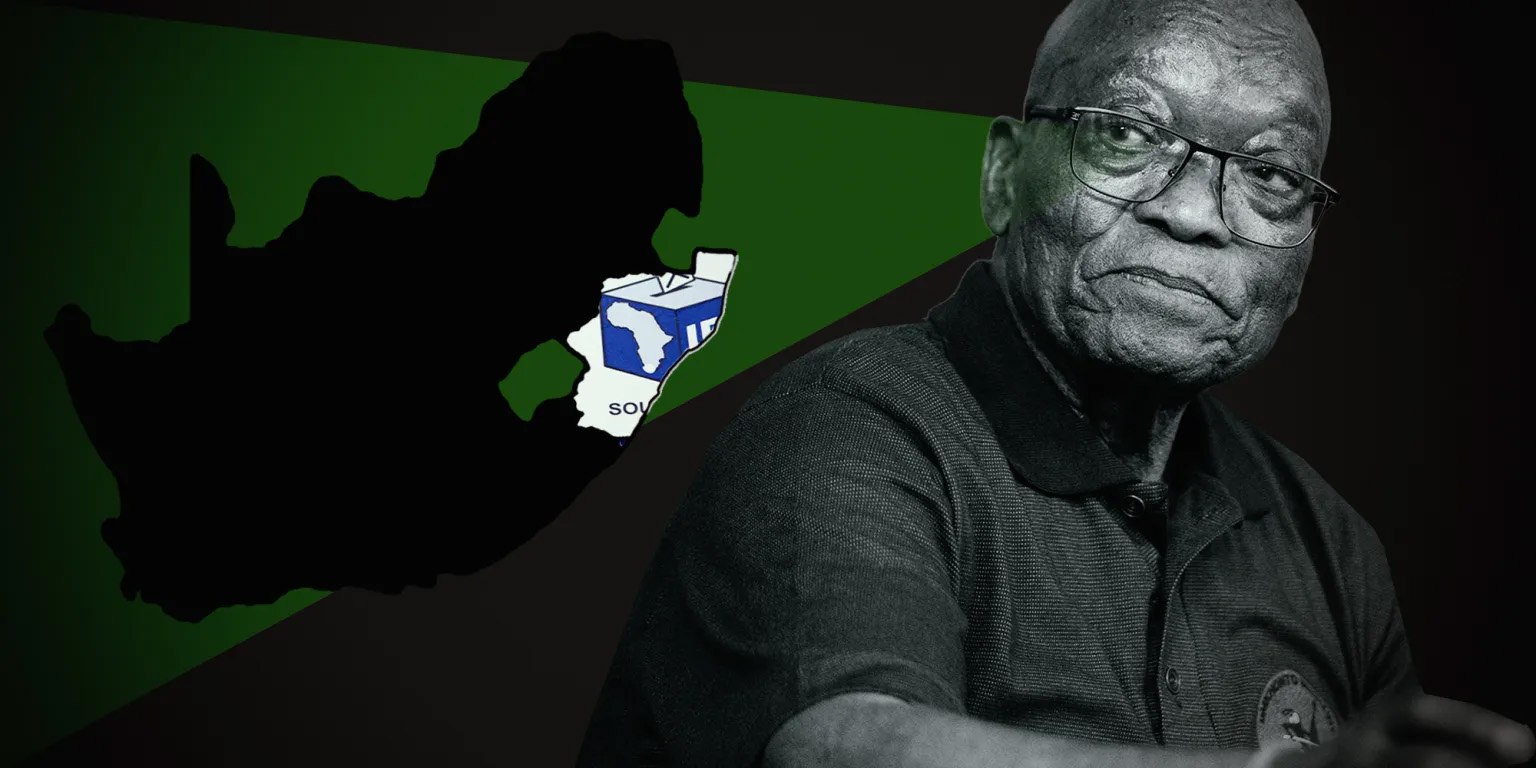From virtually the moment of its inception in December 2023, the uMkhonto Wesizwe party launched by former president Jacob Zuma has been embroiled in chaos.
There have been legal disputes centering on copyright issues around the party name. There have been legal disputes relating to the eligibility of Zuma to be elected to the National Assembly. There have been legal disputes relating to the battle for supremacy between Zuma and the man at one stage declared to be party leader, Jabulani Khumalo, who has now been ousted.
As things stand, the day after voting, it is still totally unclear who actually leads this party, who they would send to Parliament, or who they might put forward as provincial premier candidates.
The role of a figure like Duduzile Zuma — Jacob Zuma’s daughter, whose video footage suggests requires an isiZulu translator to address party events — is also ambiguous. And her apparent lack of ease in the language is relevant, because the MK party has been branded by some as “ANC yamaZulu”, or “ANC of the Zulu people”: namely, a fundamentally Zulu-interest breakaway.
https://www.youtube.com/watch?v=99E_Ox8TZ5w
Read more in Daily Maverick: Zuma’s MK party trades on identity politics, invoking Zulu nationalism, traditional leadership
The levels of disarray around this political outfit, together with its distressingly anti-constitutional outlook, have led many of us to want to disregard it altogether.
But with the first results from voting districts starting to trickle in steadily, it is now clear that fairly significant numbers of voters around the country feel differently. It is also evident that although the MK party’s best results will come from KwaZulu-Natal, as was expected, the party does indeed also have pockets of support in other parts of the country, so it cannot be dismissed as an entirely localised phenomenon.
With MK votes having comfortably reached six digits by 1 pm on Thursday, it might be time to remind ourselves of what its manifesto promised voters.
The MK party wants to “re-centre” South Africa on “African cultural and moral values”, without specifying further what exactly that might look like.
Its manifesto promises to do away with what it calls “constitutional supremacy” towards “unfettered parliamentary supremacy”. The party has at several points in the recent past shown open disdain for the judicial system and the Constitutional Court in particular, railing against the influence of “11 unelected individuals” on the lives of 60-million-plus South Africans.
The manifesto further proposes that post-apartheid reconstruction “cannot be facilitated by a liberal Constitution that constrains the political power of the majority”. The party would champion a referendum to scrap the Constitution.
It wants to expropriate “all” land without compensation and transfer ownership to “the people under State and traditional leadership custodianship”. That last part has raised alarm bells, even among some people who enthusiastically support radical redress, because the example of the Ingonyama Trust in KZN shows how this can become a repressive feudal system.
 Former South African President Jacob Zuma gestures after voting during the South African elections, in Nkandla, South Africa. 29 May 2024. (Photo: Reuters/Rogan Ward)
Former South African President Jacob Zuma gestures after voting during the South African elections, in Nkandla, South Africa. 29 May 2024. (Photo: Reuters/Rogan Ward)
It would nationalise “strategic” mines, and make a year of military service compulsory for “every young person reaching the age of 18” in order to “cultivate discipline and patriotism among our youth”.
It also favours nationalising the South African Reserve Bank, all large banks and all large insurance companies.
With regards to the environment, the party refers to the move away from coal as the “Un-Just Transition”. It wants to “renew” Eskom’s coal fleet and – surprise surprise – accelerate South Africa’s nuclear programme.
On the the LGBTQIA+ community, Zuma also holds strong unconstitutional views. It was reported that during an MK rally in January this year Zuma showed solidarity with tribal leaders over their alleged concern about same-sex marriages. He also implied that legislation supporting same-sex marriage lacks support from the majority of South Africa. Zuma's January comments aligned which his 2006 sentiments that same-sex marriage is a “disgrace to the nation and to God”.
GroundUp published an opinion piece by Zackie Achmat on the matter. Why is Jacob Zuma attacking queer people?
The full MK manifesto can be read here.
It’s important to note that there is no indication yet that the MK party will win sufficient votes to take sole control of any major territories, and nobody sensible is predicting that they will come anywhere close to doing so.
But their results are likely to establish the party as a non-trivial arrival in the South African body politic — and they also remind us that the figure of Jacob Zuma is by no means an entirely spent political force. DM




 Former South African President Jacob Zuma gestures after voting during the South African elections, in Nkandla, South Africa. 29 May 2024. (Photo: Reuters/Rogan Ward)
Former South African President Jacob Zuma gestures after voting during the South African elections, in Nkandla, South Africa. 29 May 2024. (Photo: Reuters/Rogan Ward) 